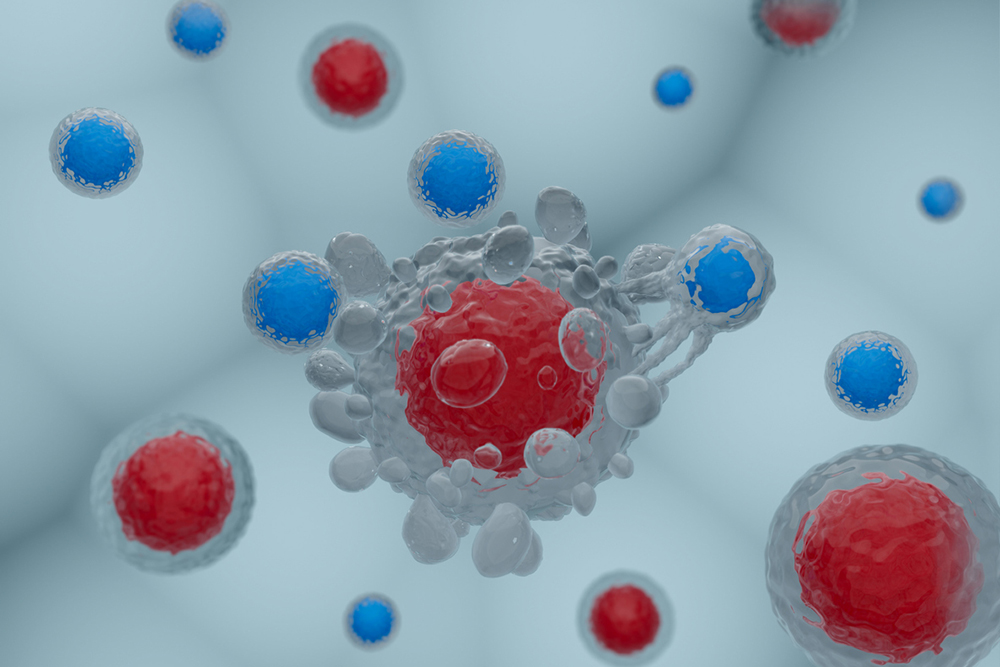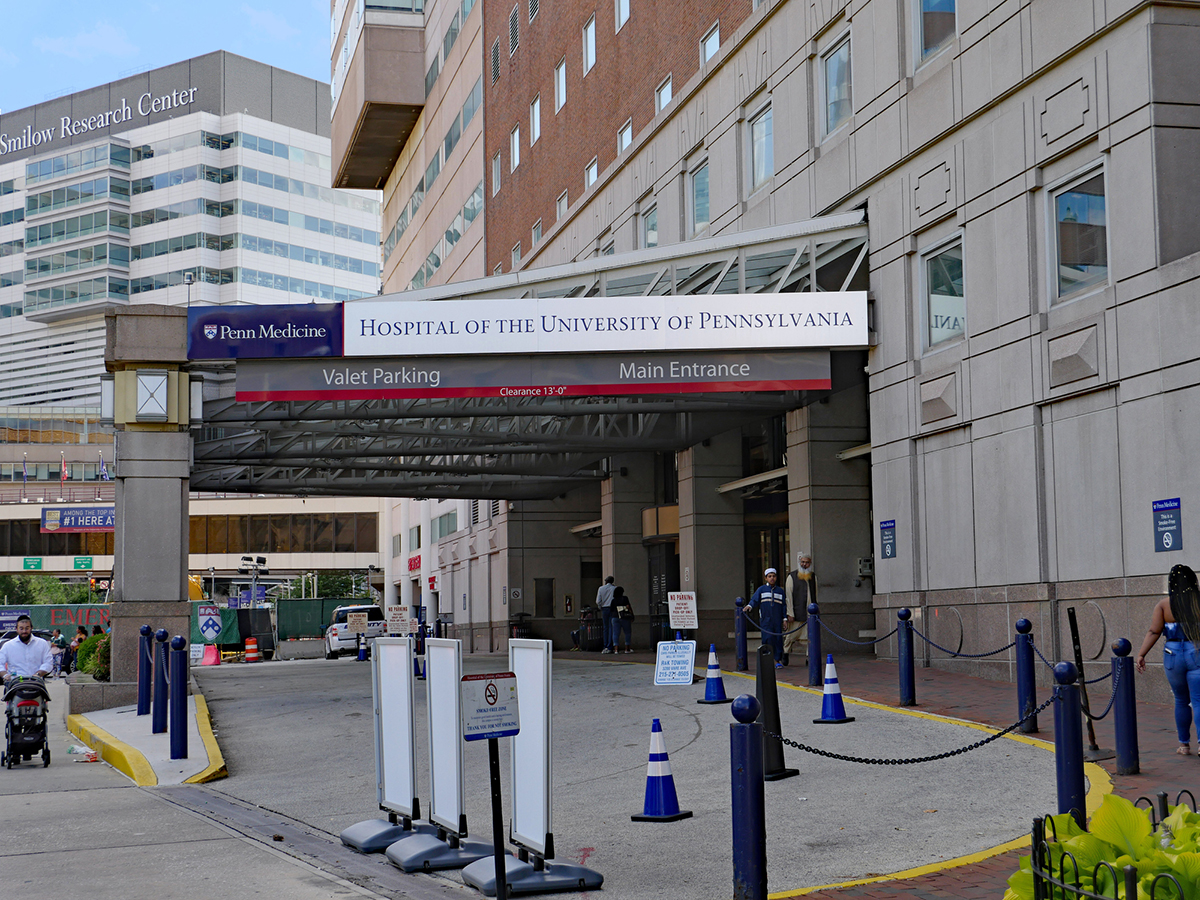
Scientists have developed and tested CAR T-cell therapies as a standalone cancer therapy – a singular treatment option when surgery is not possible and other therapies like chemotherapy, radiation or stem-cell transplant have failed.
Combining this cancer cell and gene therapy with other treatment options may also have potential to significantly help patients.
Researchers at the University of Pennsylvania’s Perelman School of Medicine – including ACGT-funded cell and gene therapy pioneer Carl June, MD – studied the use of CAR T-cell therapy following surgery for breast cancer. The study was so successful that the University of Pennsylvania team is now pursuing a clinical trial for the combination. One of the intriguing parts of this study is the method with which patients received their CAR T cells to avoid possible toxic side effects.
This encouraging news from the University of Pennsylvania may lead to other institutions combining CAR T-cell therapy with surgery as a way to treat solid tumors.
Brief overview of CAR T-cell therapy for cancer

T cells are immune cells tasked with protecting the body from diseases, such as viruses. Our bodies’ T cells face challenges in fighting cancer. Cancer often evades T cells and can grow without much resistance from the immune system.
CAR T cells are T cells engineered to fight cancer more effectively. The CAR T cells search for cancer cells by seeking out all cells expressing a specific protein typically expressed only by cancer cells.
Doctors remove the patient’s T cells and send them to a laboratory, where they are reprogrammed genetically.
Scientists add a chimeric antigen receptor, which is often referred to by the acronym “CAR”. This antigen receptor directs the T cells to look for cells expressing a specific cancerous protein. Once the T cells have their new CAR, they’re infused back into the patient’s bloodstream.
Challenges of using CAR T-cell therapy for solid tumors
There have been monumental breakthroughs in using CAR T cells to treat blood cancers, leading to FDA approvals of CAR T-cell therapies for blood cancers like leukemia and lymphoma. However, the use of this cell and gene therapy for solid tumors is still in testing.
Researchers often cite a more challenging set of circumstances for using CAR T cells to fight solid tumors. These challenges include the cancer cells and healthy cells sharing proteins, and the environment around the tumor that suppresses immune cells.
According to Penn Medicine, there’s evidence CAR T cells can still be useful as a post-surgery treatment for solid tumors.
How CAR T cells can help cancer surgery
In many case, surgery is one of the most effective treatment options for cancer. Doctors use surgery to remove diseased tissue and expedite treatment.
However, cancer does not always grow as one mass. Some cells separate from the main tumor, and the surgical team is often unable to detect these remnant cancer cells during an operation. The remnant cells often lead to recurrence of cancer following surgery.
Attempting to address these remnant cancer cells is why the Penn Medicine team explored the idea of using CAR T-cell therapy after surgery. According to an article on the Penn Medicine website, researchers studied the combination in mice with breast cancer. In almost all cases, the CAR T cells killed any residual tumor cells, which prevented recurrence.
CAR T cells wipe out residual breast cancer in nearly all mice subjects

The University of Pennsylvania researchers programmed the CAR T cells to look for the protein mesothelin, which is a protein expressed on the surface of breast cancer cells. Of 20 mice who received the mesothelin-targeting CAR T cells, 19 of them had complete remission.
One of the more interesting aspects is how the CAR T cells were given to the mice. Rather than inject them intravenously into the blood, scientists added the CAR T cells to a gel that they applied to the mice’s surgical wounds.
This method showed one significant benefit: The mice avoided severe toxic side effects of CAR T-cell therapy passing through the bloodstream and attacking healthy cells also carrying the mesothelin protein.
ACGT-funded scientist Carl June leads study
The University of Pennsylvania study was led by Dr. June, the director of the Center for Cellular Immunotherapies at Penn Medicine’s Abramson Cancer Center. Dr. June is an Alliance for Cancer Gene Therapy (ACGT) Research Fellow and member of ACGT’s Scientific Advisory Council.

Dr. June received grant funding from ACGT nearly 20 years ago, and this ACGT-funded work was instrumental in the FDA approving the first CAR T-cell therapy for blood cancer. His focus is now on solid tumors, such as pancreatic cancer and breast cancer, and he’s exploring different ways to use CAR T-cell therapy effectively to treat these diseases.
“As we continue to advance CAR T-cell therapy forward, finding applications for use in solid tumors is a major goal,” Dr. June said. “This study demonstrates the promise of CAR T as an add-on to surgery for solid tumors. We also think that this approach could be broadened to deliver other cellular therapies and anticancer agents in addition to CAR T cells, potentially boosting the antitumor effectiveness even further.”
Cell and gene therapy news delivered to your inbox
Alliance for Cancer Gene Therapy has been at the forefront of advancing research into cell and gene therapies, such as CAR T-cell therapies, for over 20 years. Our efforts led to FDA approvals of CAR T-cell therapies for blood cancer patients whose cancer didn’t respond to other treatments. Many of these patients are in full remission today.
If you’d like more news about progress using cell and gene therapies for cancer, sign up for ACGT’s e-newsletter. This monthly email delivers the latest news directly to your inbox. You’ll learn about the efforts of ACGT Research Fellows and ways you can help us advance cell and gene therapy to transform the treatment of cancer.
Page sources
- CAR T Cell Therapy May Eliminate Tumor Cells Missed by Surgery. Penn Medicine. Retrieved from: https://www.pennmedicine.org/news/news-releases/2023/january/car-t-cell-therapy-may-eliminate-tumor-cells-missed-by-surgery. Accessed: 01/18/2023.



